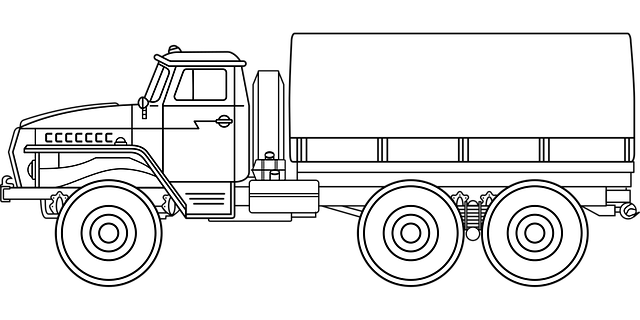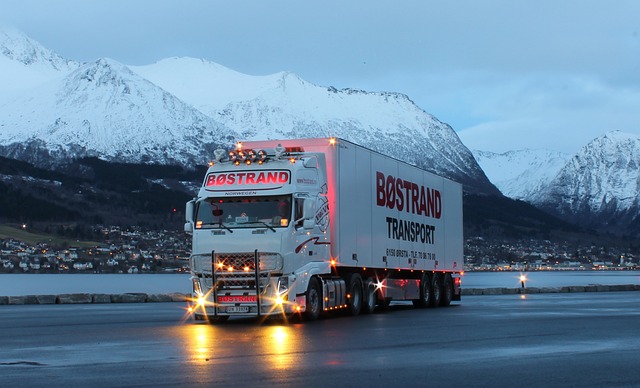Physical damage coverage is crucial for trucking businesses to protect their fleet from wear and tear, accidents, natural disasters, and vandalism. Comprehensive fleet insurance offers tailored, affordable plans for small and large fleets, ensuring prompt repairs or replacements, minimizing downtime, and managing risks effectively. When selecting a plan, consider collision and comprehensive insurance, fleet size, cost, service quality, and provider reputation to find the best protection for your vehicles.
In the world of trucking, maintaining a fleet involves addressing two primary types of damage: wear and tear versus covered physical harm. While regular wear is inevitable, ensuring adequate physical damage coverage for fleets can safeguard against unexpected events like collisions or accidents. This article explores common issues in fleet trucks, delves into available truck repair insurance options, offers guidance on choosing the right plan, and highlights the benefits of comprehensive fleet insurance. By understanding these aspects, small fleet operators can ensure their vehicles receive the protection they need on the road.
Understanding Wear and Tear: Common Issues in Fleet Trucks

Wear and tear is a natural part of owning and operating vehicles, especially in the case of fleet trucks. This term refers to the gradual deterioration or loss of value due to normal use over time. Unlike physical damage, which results from accidents or sudden events, wear and tear is often an incremental process. Common issues that contribute to wear and tear in fleet trucks include frequent stop-and-go driving, harsh weather conditions, uneven road surfaces, and heavy cargo loads. These factors can accelerate the aging process of various components such as tires, brakes, engines, and exterior panels.
For fleet owners, managing wear and tear is a significant challenge, especially when it comes to ensuring operational efficiency and minimizing costs. Physical damage coverage for fleet trucks through comprehensive insurance plans can help address these concerns. By opting for collision coverage for fleets or affordable physical damage plans tailored for small fleets, operators can protect their vehicles from unexpected repair expenses resulting from accidents or severe weather events. This, in turn, allows them to allocate resources more effectively, focusing on proactive maintenance and truck repair insurance rather than solely reacting to damages after they occur.
Physical Damage Coverage for Fleets: What's Included?

Physical Damage Coverage for Fleets plays a crucial role in protecting businesses that rely on truck fleets. This type of coverage goes beyond wear and tear, addressing specific instances of physical damage to vehicles. It typically includes protection against collision, comprehensive accidents, and certain environmental hazards like flooding or falling objects. For fleet owners, this means peace of mind knowing that unexpected events won’t cripple their operations.
When considering Physical Damage Coverage for Fleet Trucks, businesses should explore options tailored for their specific needs. Affordable physical damage plans are available for small fleets, offering comprehensive fleet insurance without breaking the bank. These policies ensure that repairs or replacements can be covered promptly, minimizing downtime and potential financial losses. Thus, collision coverage for fleets and truck repair insurance become valuable assets in managing risks associated with commercial trucking operations.
Choosing the Right Truck Repair Insurance Plan: Factors to Consider

When selecting a truck repair insurance plan for your fleet, several key factors come into play to ensure comprehensive protection against both wear and tear and physical damage. One of the primary considerations is the type of coverage offered. Look for policies that include collision coverage for fleets, which can help with repairs stemming from accidents or incidents involving your trucks. Comprehensive fleet insurance is another valuable option, as it covers a wide range of damages beyond collisions, including vandalism, natural disasters, and even theft.
Additionally, assess the specific needs of your fleet in terms of size and usage. Small fleet damage policies may be suitable for smaller operations with limited exposure to high-risk scenarios. However, larger trucking fleets might require more specialized and affordable physical damage plans tailored to their unique operational challenges. Compare different insurance providers and their offerings, considering not just cost but also the quality of service, reputation, and additional benefits that could enhance fleet vehicle protection.
Comprehensive Fleet Insurance: Protecting Your Vehicles from Unexpected Events

Comprehensive Fleet Insurance offers a robust solution to protect your trucks from unforeseen events that can cause significant physical damage. This type of coverage goes beyond basic collision insurance, providing protection for various types of wear and tear and mechanical failures that may arise during regular operation or unexpected incidents. Physical damage coverage for fleet trucks ensures that repairs or replacements are covered, minimizing the financial burden on owners.
For small fleets, affordable physical damage plans are available, catering to the unique needs of trucking operations. These policies offer peace of mind by ensuring that your vehicles remain operational and on the road, despite unexpected repairs. Comprehensive fleet insurance packages typically include collision coverage, protecting against incidents like accidents, natural disasters, or vandalism, while also addressing routine maintenance and minor damages that can accumulate over time.
In conclusion, protecting your fleet vehicles from wear and tear as well as unforeseen physical damage is crucial for any business. By understanding the distinctions between these issues and selecting the appropriate truck repair insurance plan, you can ensure comprehensive fleet vehicle protection. Consider affordable physical damage plans tailored to small fleets and explore options like collision coverage for fleets and comprehensive fleet insurance to safeguard your investment against unexpected events.
